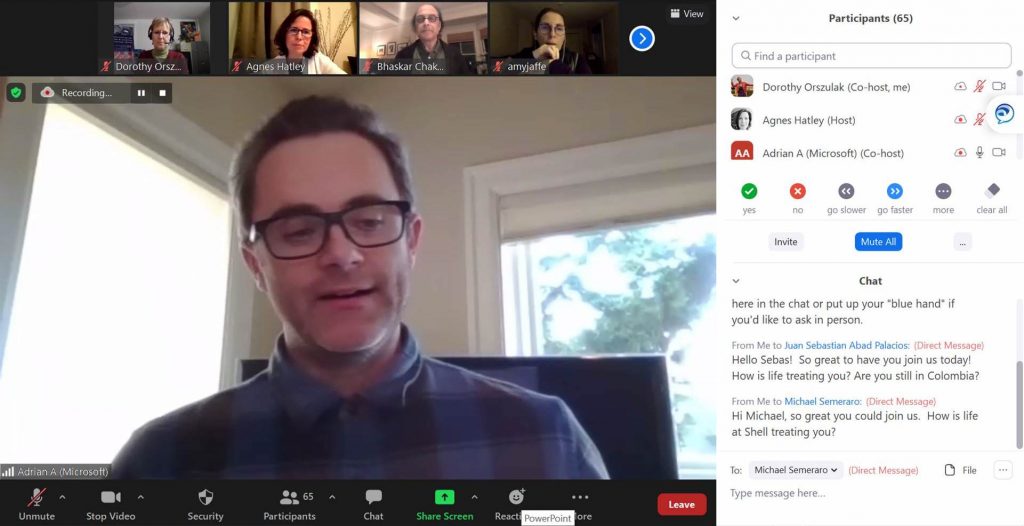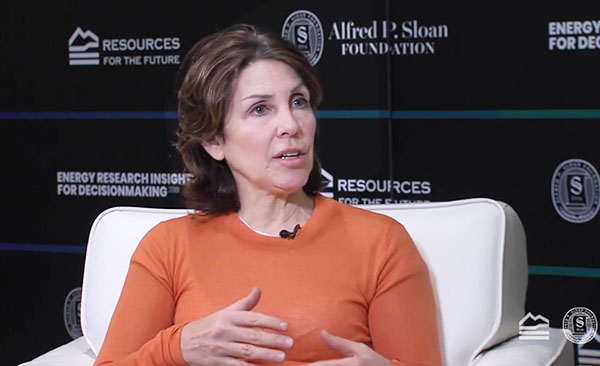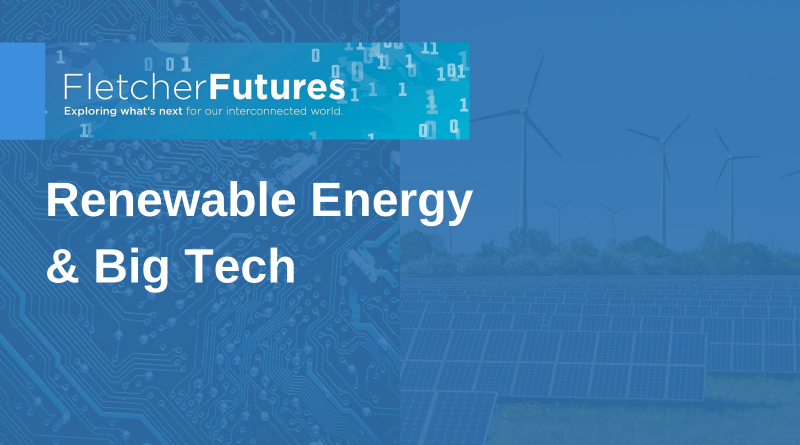Fletcher Futures: How the Combined Forces of Renewable Energy and Big Tech Can Lead Us to a Zero-Carbon Future
The Institute for Business in the Global Context teamed up with Fletcher’s Center for International Environment and Resource Policy (CIERP) to host the 5th installment of Fletcher Futures, a webinar series that brings Fletcher faculty together with alumni of the Master of International Business (MIB) Program and current Fletcher students for discussions on international business, public policy, the global economy, human security, international law, and digital innovations. Through these collaborative conversations, each webinar provides insightful commentary and insight on what lies ahead for the world’s most promising industries and markets. The discussion also highlights how these trajectories impact career opportunities in related fields.
The 5th installment of the series focused on renewable energy and Big Tech, and how, when combined, their forces can forge a progressive, resilient path toward a Zero-Carbon Future. The webinar featured Amy Jaffe, Fletcher Research Professor and the Managing Director of the Climate Policy Lab at CIERP, and MIB alumnus Adrian Anderson, Senior Director at Microsoft’s Renewable Energy Group.

Adrian’s career in tech began in 2015, when he was hired at Apple as a Procurement Manager. Since then, he has worked at Amazon, Google, and most recently Microsoft, where he leads the renewable energy team and part of the operational team to execute on the company’s 2025 renewable energy goals and carbon neutrality goals.
During the webinar, Adrian reflected on his career path after graduating from Fletcher’s Master of International Business program. He credits his Fletcher education for preparing and inspiring him to tackle the challenges and uncover the areas of opportunity in the renewable energy space, especially as they relate to technology. He recognizes that the skills he mastered at Fletcher serve him well on a day-to-day basis. From negotiating with internal stakeholders, to working efficiently with Microsoft’s financial, legal, and accounting departments, the managerial and business skills taught at Fletcher have proven to be instrumental throughout his career.
Adrian also credits his ability to leverage business objectives with key factors of sustainable development, inclusion, and diplomacy to his experience at Fletcher. When explaining his career trajectory post-graduation, he remarks that the Master of International Business degree is firmly rooted in the belief that there is something beyond revenue to consider while working for large, international companies– and that’s your impact beyond your daily responsibilities. A participant asked what advice Adrian has for those looking to kickstart a career in business with a focus in sustainability and inclusiveness. He recommends taking a humanistic approach, one that fully understands, listens to, and engages with the key stakeholders and communities impacted by business practices. To him, understanding the connections between private enterprise and public good is crucial when going about a career in international business.
As opposed to Adrian’s career, Amy Jaffe spent much of her professional life in the public sector, where she worked for the state of California to develop policies and regulations to make trucks more sustainable. She also studied the pollution of distribution centers, and how fence-line communities located near these facilities often bare the burden of pollution from Diesel trucks and other sources of emissions.

Jaffe’s work at the Climate Policy Lab analyzes the impact large, international companies have on the world, and how these impacts may inadvertently affect the environment and disenfranchised, minority, or low-income groups of people. She also studies the influence of AI, automation, and big data on the sustainable goals of these large companies. Jaffe stresses the importance of looking at the unintended consequences that often arise from new and emerging technologies, whether they be in the climate and environment space or the private sector.
Watch the entire Fletcher Futures session below to hear from Adrian and Amy about advances in technology and how they can best be used to reach a more sustainable, inclusive future:

